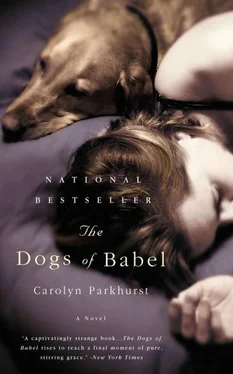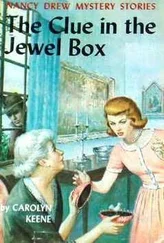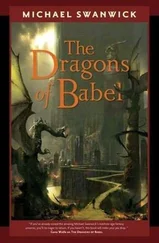Carolyn Parkhurst - The Dogs of Babel
Здесь есть возможность читать онлайн «Carolyn Parkhurst - The Dogs of Babel» весь текст электронной книги совершенно бесплатно (целиком полную версию без сокращений). В некоторых случаях можно слушать аудио, скачать через торрент в формате fb2 и присутствует краткое содержание. Город: New York, Год выпуска: 2003, ISBN: 2003, Издательство: Little, Brown and Company, Жанр: Детектив, на английском языке. Описание произведения, (предисловие) а так же отзывы посетителей доступны на портале библиотеки ЛибКат.
- Название:The Dogs of Babel
- Автор:
- Издательство:Little, Brown and Company
- Жанр:
- Год:2003
- Город:New York
- ISBN:978-0-7595-2806-2
- Рейтинг книги:3 / 5. Голосов: 1
-
Избранное:Добавить в избранное
- Отзывы:
-
Ваша оценка:
- 60
- 1
- 2
- 3
- 4
- 5
The Dogs of Babel: краткое содержание, описание и аннотация
Предлагаем к чтению аннотацию, описание, краткое содержание или предисловие (зависит от того, что написал сам автор книги «The Dogs of Babel»). Если вы не нашли необходимую информацию о книге — напишите в комментариях, мы постараемся отыскать её.
The Dogs of Babel — читать онлайн бесплатно полную книгу (весь текст) целиком
Ниже представлен текст книги, разбитый по страницам. Система сохранения места последней прочитанной страницы, позволяет с удобством читать онлайн бесплатно книгу «The Dogs of Babel», без необходимости каждый раз заново искать на чём Вы остановились. Поставьте закладку, и сможете в любой момент перейти на страницу, на которой закончили чтение.
Интервал:
Закладка:
On opening night, Lexy and I went to see the play, which turned out to be a bit better than I’d expected. Lexy’s masks were a focal point of the production. She’d managed to talk Patricia out of the smiley faces, and they’d settled instead on masks that revealed the inner torment of each character, which lent a striking and harrowing effect to an otherwise rather silly production. Afterward, Patricia invited us to join the cast for the opening night party, which was held—where else?—at a karaoke bar. I remember we had a very good time that night. We drank shots of tequila, and after several drinks, Lexy was able to persuade me to get up with her and perform a duet of “I Got You, Babe.” I have a snapshot in my mind of Lexy standing there, flushed and laughing, with a microphone in her hand, singing the words of a love song to me. When I sang “Put your little hand in mine,” she reached out to me, and her grasp was warm and soft. Afterward, we kissed in the taxicab on the way home, making out like teenagers while the cabdriver studiously ignored us. It was a moment of pure happiness, not just for me, but for us both. She was happy that night, do you see? She was happy.
That was somewhere around the middle of August. That was, according to the best estimates of the medical examiner, the week our child was conceived.
THIRTY-EIGHT
Ithink about the baby all the time. It’s been a week since Lorelei disappeared, and I don’t have much else to do. I’ve papered the neighborhood with her picture, I’ve placed ads in the local papers, and I call the police every day, but there’s still nothing. So I sit at home, waiting for news of my dog, and I think about what I’ve lost. It’s July now; the baby would be two months old, almost old enough to hold up its head by itself, old enough perhaps to smile. I try to imagine that other life, that other winter, the one where I get to watch Lexy’s body grow heavy with new life. The one where her water breaks in the middle of the night, and we time her contractions on a stopwatch. The one where we drive home on a bright spring day and I hold Lexy’s elbow as she carries our child into the house for the first time. I imagine a girl baby first, a tiny girl with dimpled fingers and a scalp covered in soft fuzz. Then a boy, a sweet little boy with a mouth like a rose. And I find, at last, that I am angry.
I’m angry at a dead woman. It’s not a welcome feeling. And when I try to catch hold of the thread of my anger, to follow it through to its other end, I hit knot after tangled knot. I’m angry, I suppose, that she climbed to the top of a tree, knowing that she held our child within her. I’m angry that she never told me she was pregnant, that she never gave me the gift of that knowledge and all the potential it held. And I’m angry, of course—but you don’t know anything, I tell myself, you don’t know anything at all—I’m angry that if she took her own life, she did it knowing that she was taking a second life with it.
I feel like yelling, I feel like pounding the walls with my fists, I feel like ripping apart everything in the house. My blood feels hot in my veins, and I want to jump out of my body. I pace back and forth through my empty rooms, sampling the flavor of this untested emotion. It feeds on itself and gains weight in my body until I think I must do something to let it out. It’s only after I’ve walked past the basement door fifty times or more that I decide to open it and walk down the stairs to Lexy’s workshop. It’s not the first time I’ve been down here since her death, of course, but it’s the first time I’ve looked around this room with my eyes unclouded by the exquisite tenderness of fresh grief. I want to wreak havoc down here, I want to tear the masks from the goddamned walls, but I hold myself back. What I really want is to understand. I want to see Lexy as she really was. There has to be something down here that can help me understand.
In the corner, there’s a small desk where she kept her files, her receipts of masks sold, her sketches for future designs. I throw myself on the desk and start pulling papers out of the drawers. I tear through drawer after drawer, looking for something, anything, that will tell me something new. And it’s in this reckless frenzy, this disrespectful pawing through the things that mattered to Lexy, that I come upon her book of dreams.
I recognize it immediately, of course—how many times have I seen it in her hands?—and I can’t believe it’s never occurred to me to look for it before. It’s a beautiful book, made by Lexy herself, with a blue velvet cover and soft pages of grainy, handmade paper. It’s not the original book, of course, the one she started in childhood. That first book, a tattered red notebook with the cover torn nearly off and the spiral binding poking out at dangerous angles, was the one she was still using when I met her. But for our first Christmas together, I bought her a paper-making kit, and she spent weeks carefully transcribing each dream from the old book into the new one she’d created.
I hold the book in my hands, stunned at the discovery. For a frightened moment, I think that I shouldn’t open it at all, that I should hide it away again, burn it, bury it the way the parents of Lexy’s dead girl, Jennifer, had buried their daughter’s diary without ever seeing what secrets it held. But in an instant, I know I will read it. How can I possibly not?
I take the book over to the sofa and sit down. The dreams are listed in chronological order. Lexy was eleven when she first started writing them down, and she began by listing every dream she could ever remember having. The very first one, dated tentatively with a question mark as being from the year she was four, is one of the ones I remember her telling me during our drive to Disney World: “I was in a castle, but there was only one room. A king came in and I hid behind his throne, but he saw me and yelled at me, and I was scared.” The next one, dated two years later, is also a nightmare: “There were spiders everywhere. I wasn’t even in the dream, just the spiders.” And when she was nine: “My dog Sunshine died and I was sad.” At age ten, she writes, “I got married to Jonathan Weiss, this boy I liked at school. When I woke up, I thought he would really be there, and I went walking all over the house looking for him.” As she gets older, as she and her dreams age and mature a bit, the descriptions become more detailed, as in this one, written when she was twelve: “I was in my friend Lisa’s house, but it was also the same as the McDonald’s at the Wal-Lex shopping center. I tried to find Lisa to tell her that this wasn’t really her house, but her mother kept taking me behind the counter and making me cook hot dogs. I was yelling at her that they don’t even have hot dogs at McDonald’s, but she wouldn’t listen.” So many of them are like this: ordinary, meandering, shaped by the kind of internal logic found only in dreams. And that’s it—they’re only dreams. What can I hope to learn?
I turn the pages, skimming through the magical and mundane dreams of little girls. One of them, dated when she was sixteen, makes me catch my breath: “I was on top of a high building, and I was walking close to the edge, and I fell off. I thought I was going to fall all the way to the ground, but halfway down, I found I could fly.” The height, the fall—it makes me dizzy for a moment. But so many people have dreams of falling, dreams of flight—I’ve had them myself, dreams where I wake with my heart pounding, convinced I’ve just fallen to the bed from a great height—that I have to conclude it doesn’t mean a thing.
I skip ahead past college dreams of missed exams and sex with strangers, past a recurring nightmare in her twenties about driving a car down a flight of stone steps. I skip to the part after she and I have met. And there I am, a new fixture in her dreams, sometimes a key figure, sometimes just a bit player: “Paul and I decide to buy a new house, but it’s so big I get lost. He keeps calling to me, and I try to follow his voice, but I can never find him.” Or “I’m on a train somewhere in Europe, and I’m not sure where I’m supposed to get off, but I’m not too concerned about it. I’m eating delicious pastries. Paul’s there, too.” I enjoy reading the ones that I’m in, even when the role I play in them is small. It’s gratifying to know that you’ve appeared in someone else’s dreams. It’s proof that you exist, in a way, proof that you have substance and value outside the walls of your own mind.
Читать дальшеИнтервал:
Закладка:
Похожие книги на «The Dogs of Babel»
Представляем Вашему вниманию похожие книги на «The Dogs of Babel» списком для выбора. Мы отобрали схожую по названию и смыслу литературу в надежде предоставить читателям больше вариантов отыскать новые, интересные, ещё непрочитанные произведения.
Обсуждение, отзывы о книге «The Dogs of Babel» и просто собственные мнения читателей. Оставьте ваши комментарии, напишите, что Вы думаете о произведении, его смысле или главных героях. Укажите что конкретно понравилось, а что нет, и почему Вы так считаете.












